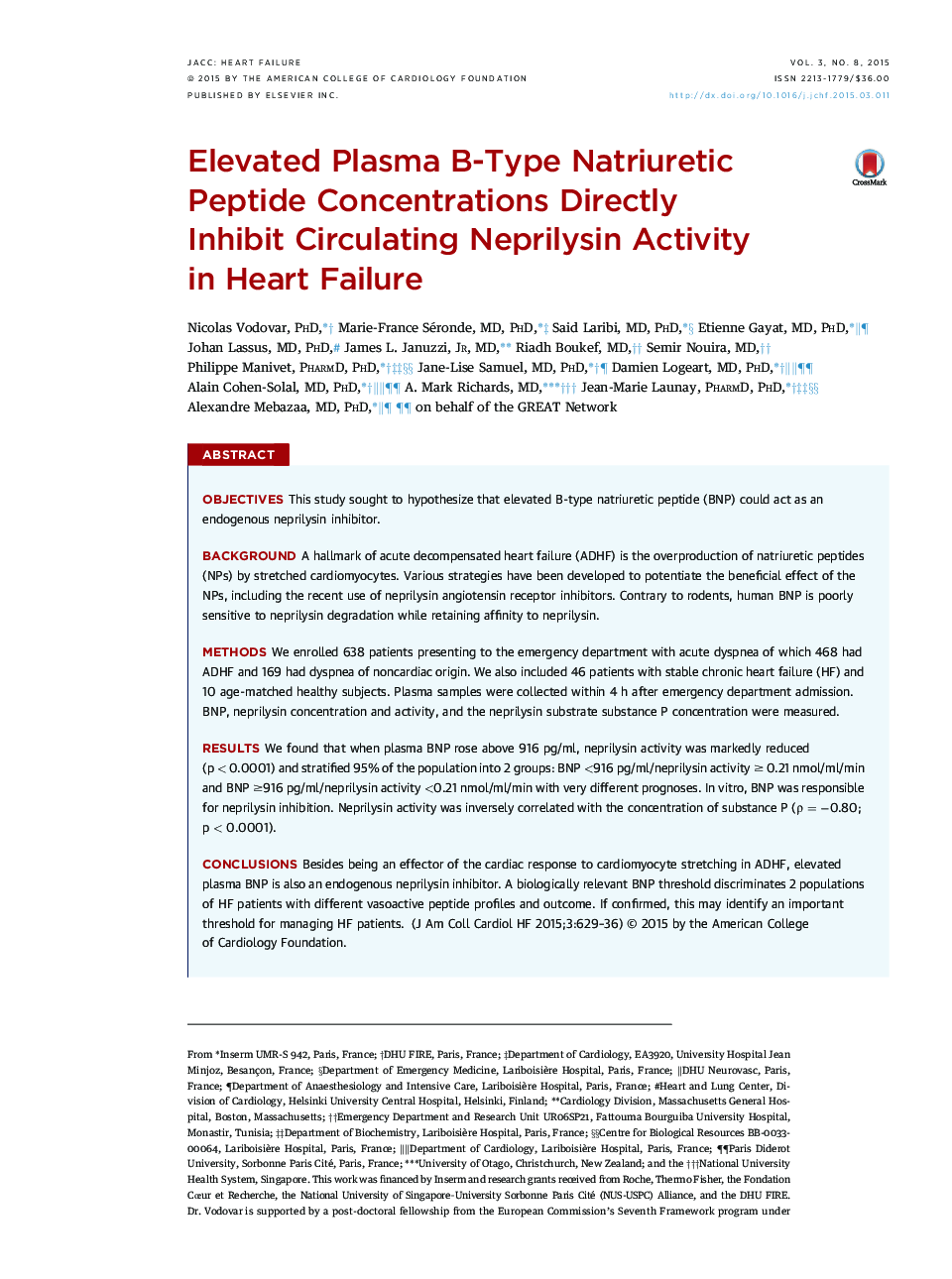| Article ID | Journal | Published Year | Pages | File Type |
|---|---|---|---|---|
| 2942450 | JACC: Heart Failure | 2015 | 8 Pages |
ObjectivesThis study sought to hypothesize that elevated B-type natriuretic peptide (BNP) could act as an endogenous neprilysin inhibitor.BackgroundA hallmark of acute decompensated heart failure (ADHF) is the overproduction of natriuretic peptides (NPs) by stretched cardiomyocytes. Various strategies have been developed to potentiate the beneficial effect of the NPs, including the recent use of neprilysin angiotensin receptor inhibitors. Contrary to rodents, human BNP is poorly sensitive to neprilysin degradation while retaining affinity to neprilysin.MethodsWe enrolled 638 patients presenting to the emergency department with acute dyspnea of which 468 had ADHF and 169 had dyspnea of noncardiac origin. We also included 46 patients with stable chronic heart failure (HF) and 10 age-matched healthy subjects. Plasma samples were collected within 4 h after emergency department admission. BNP, neprilysin concentration and activity, and the neprilysin substrate substance P concentration were measured.ResultsWe found that when plasma BNP rose above 916 pg/ml, neprilysin activity was markedly reduced (p < 0.0001) and stratified 95% of the population into 2 groups: BNP <916 pg/ml/neprilysin activity ≥ 0.21 nmol/ml/min and BNP ≥916 pg/ml/neprilysin activity <0.21 nmol/ml/min with very different prognoses. In vitro, BNP was responsible for neprilysin inhibition. Neprilysin activity was inversely correlated with the concentration of substance P (ρ = −0.80; p < 0.0001).ConclusionsBesides being an effector of the cardiac response to cardiomyocyte stretching in ADHF, elevated plasma BNP is also an endogenous neprilysin inhibitor. A biologically relevant BNP threshold discriminates 2 populations of HF patients with different vasoactive peptide profiles and outcome. If confirmed, this may identify an important threshold for managing HF patients.
